NIL
Inside the chaos
It’s been just under a month since former five-star quarterback Nico Iamaleava dramatically departed from Tennessee as college football’s first high-profile holdout. A week later, he signed with UCLA on what may have been a smaller contract than he garnered at Tennessee. Since that concluded, college football’s second transfer portal window closed, screwing the lid […]


It’s been just under a month since former five-star quarterback Nico Iamaleava dramatically departed from Tennessee as college football’s first high-profile holdout. A week later, he signed with UCLA on what may have been a smaller contract than he garnered at Tennessee. Since that concluded, college football’s second transfer portal window closed, screwing the lid back onto the jar of chaos for some time.
But where does everything stand?
When whistles start squealing again in fall camp, Iamaleava will be just one of thousands who have departed their previous team. Over 2,700 players entered the spring transfer portal window, according to ESPN, and while most have yet to find homes, the players on teams now might be more notable than their portal counterparts.
“I’ve heard of players going up to coaches during practice and asking for more money,” said Seth Emerson, a senior college football writer for The Athletic. “Every situation is different.”
That statement would’ve been stroke-inducing for a college football coach 10 years ago. But that’s the new world of college athletics, and while Iamaleava is the most notable case to date, contract negotiations are happening everywhere.
So how did we get here? In 2021, the NCAA enacted a rule allowing college athletes to profit off of their Name, Image and Likeness (NIL), and while that’s old news, that system quickly dissolved into schools — or, more accurately, third-party collectives that are not officially associated with the universities’ athletic departments — essentially negotiating pay-for-play contracts, and that happens early.
“You have the Instagram graphics with a [high school] athlete considering Florida, Georgia, Michigan and Ohio State,” said Molly Harry, an assistant professor in the University of Florida Department of Sports Management. “Well, they’re going to all these parties and saying, ‘Hey, this is what we want.’”
Harry specializes in NIL rights and athlete employment status, researching the evolving college athletics world.
“These holdouts happen before the athletes even get on campus,” she added. “It opens a can of worms.”
That’s a product of the negotiation format, which is often fluid and differs depending on the athlete and situation. Notably, the characters range, with interactions occurring between any mix of the player, his family or an agent, and a coach or NIL collective director. There are no rules and no set format for how these conversations occur.
In Iamaleava’s case, his family, which has been outspoken about his value, reportedly played a significant role in his departure from Knoxville. As ESPN and The Athletic reported, the redshirt sophomore starting quarterback sought a pay raise from Tennessee, which he attempted to leverage after the Vols’ playoff berth in December. His negotiation power was also, to some extent, the product of the NCAA’s calendar.
“The spring portal existing gives players additional leverage, though not complete because of the SEC rule saying you have to transfer after the winter window in order to go from one [SEC] school to another,” Emerson said. “You could see more conferences do that. But it doesn’t stop players from going to schools in other conferences, so the leverage still exists.”
Iamaleava threatened to leave and started skipping spring practices. Two days later, Tennessee announced it was cutting ties with him, after the two sides couldn’t reach a deal. From there, he departed with the ensuing media storm arising. But that situation was coming for a long time. According to Harry, these conversations happen “all the time” without anyone ever knowing. That, accompanied by the spring transfer portal window (which college coaches already had a distaste for), allows athletes to more easily put schools in a corner.
The contracts themselves only exacerbate that. While players are reaching deals with NIL collectives to remain at schools, the framework of these agreements remains murky, to say the least.
“Those deals aren’t necessarily binding, as we’re finding out,” Harry said. “I do think we’ll start to see a shift in that language that’s being used in these negotiations, in the contracts.”
While not frequent, without the appropriate fine print, players sign contracts with the school’s collective only to then hop away to their next opportunity. Nico Iamaleava’s younger brother, freshman quarterback Madden Iamaleava, is the most aggressive example.
After Nico Iamaleava transferred to UCLA, his brother, an Arkansas commit, decided he would join the family in Los Angeles. The issue? He had signed a deal with Arkansas’ NIL collective.
Arkansas athletic director Hunter Yurachek has now directed the collective to pursue $200,000 in buyout money from Madden (half of the value of his remaining payments). That’s a first-of-its-type case, but Emerson thinks this is the direction athletic programs may turn to create a system of checks and balances, although new NCAA legislation could accomplish the same goal.
“In future cases, when the team really wanted to keep a player to his contract, we could see [breach of contract],” he said, warning that it’s possible but won’t be frequent. “There has to be a good reason for the team and school to want to fight it in court and deal with all the hassle and lawyers’ fees that would entail.”
Arkansas thought there was, and the result of its case will send waves through the college athletic framework. However, the Iamaleava issue continues to boil back down to the nature of college athlete compensation.
According to Harry, the NCAA doesn’t want to call athletes university employees because of the benefits athletes would then need to be provided, even though it would make contracts more enforceable. Either way, it’s “treating them as such,” in both her and Emerson’s eyes, that’s probably going to adjust in the future.
Robert Boland, a Seton Hall assistant professor of law who focuses on sports law and NIL, explained how changes might be coming sooner than the pair expects.
“The one thing that’s going to change, assuming the House settlement is ultimately approved this summer, is that, at some point, this issue is kind of going to become moot,” Boland said.
He detailed that the impending $2.8 billion federal class-action House antitrust lawsuit filed against the NCAA may remove some of the stakes from situations like this. Grant House, an Arizona State swimmer, and other collegiate athletes were grouped in a lawsuit seeking NIL damages and injunction to force the NCAA and conferences to share broadcast rights revenue. When the case is settled, and that may be possible this year, schools will be allowed to directly distribute $20.5 million among their athletes, although the implementation timeline for those changes isn’t agreed upon.
In the meantime, a variety of other solutions for Nico Iamaleava’s and Madden’s situations float around. Rumblings of the NCAA seeking a bill that will allow it to make its own eligibility rules and “be protected from court challenges” persist, according to Emerson. Even that could be subject to a court challenge on equal protection grounds, though.
Another alternative is the creation of a collective bargaining agreement, which would provide validity to Harry’s assertion that student-athletes are employees.
“I don’t know if employee status is the best route to go,” she said. “But I do think it’s an avenue worth exploring … I think it solves a lot of the issues people have with athletes transferring, athletes just coming for money.”
The NCAA and schools, however, seem far from granting that, and it would even be difficult for the players. “It’s hard to go from zero organization to some entity that would be a union,” Emerson said.
So, for now, it seems like the college athletics landscape will remain in flux. But that doesn’t mean that every school is dealing with a situation like the Iamaleava’s.
Florida ended the 2024 season with four consecutive wins, rolling confidently into the new year with freshman quarterback DJ Lagway. While Gainesville isn’t immune to NIL challenges, housing one of the larger collectives in the nation, it hasn’t seen nearly the same number of departures as most other schools.
Of the 134 FBS football programs, over 105 have had at least four transfers in the spring transfer portal window. Florida has had two: safety Gregory Smith and defensive tackle D’Antre Robinson.
“We’ve reached agreements with 98% of the team, so I think we’re just one or two players away from being done,” Florida head coach Billy Napier said after the team’s spring game last month, although the Gators did not secure commitments with those final two players, D’Antre Robinson and Gregory Smith III.
The reasons for Florida’s success in retaining players are hard to track, but the 2025 season will be the next case study. How does that translate to the field?
In the evolving world of college athletics, it could prove invaluable. While the Iamaleava family may have rattled the NCAA cage, presenting glaring flaws in the system through which student-athletes are compensated, change remains unpredictable and uneven.
“There have been so many so-called inflection points the past few years, so many moments that could have proved galvanizing,” Emerson said. “But so far none have led to … momentum towards something happening.”
NIL
Wisconsin, NIL collective sue Miami, allege tampering and NIL inducements to land football player
The University of Wisconsin and its NIL collective VC Connect filed a joint lawsuit on Friday against the University of… The University of Wisconsin and its NIL collective VC Connect filed a joint lawsuit on Friday against the University of Miami alleging it knowingly induced one of the Badgers’ football players to abandon a lucrative […]
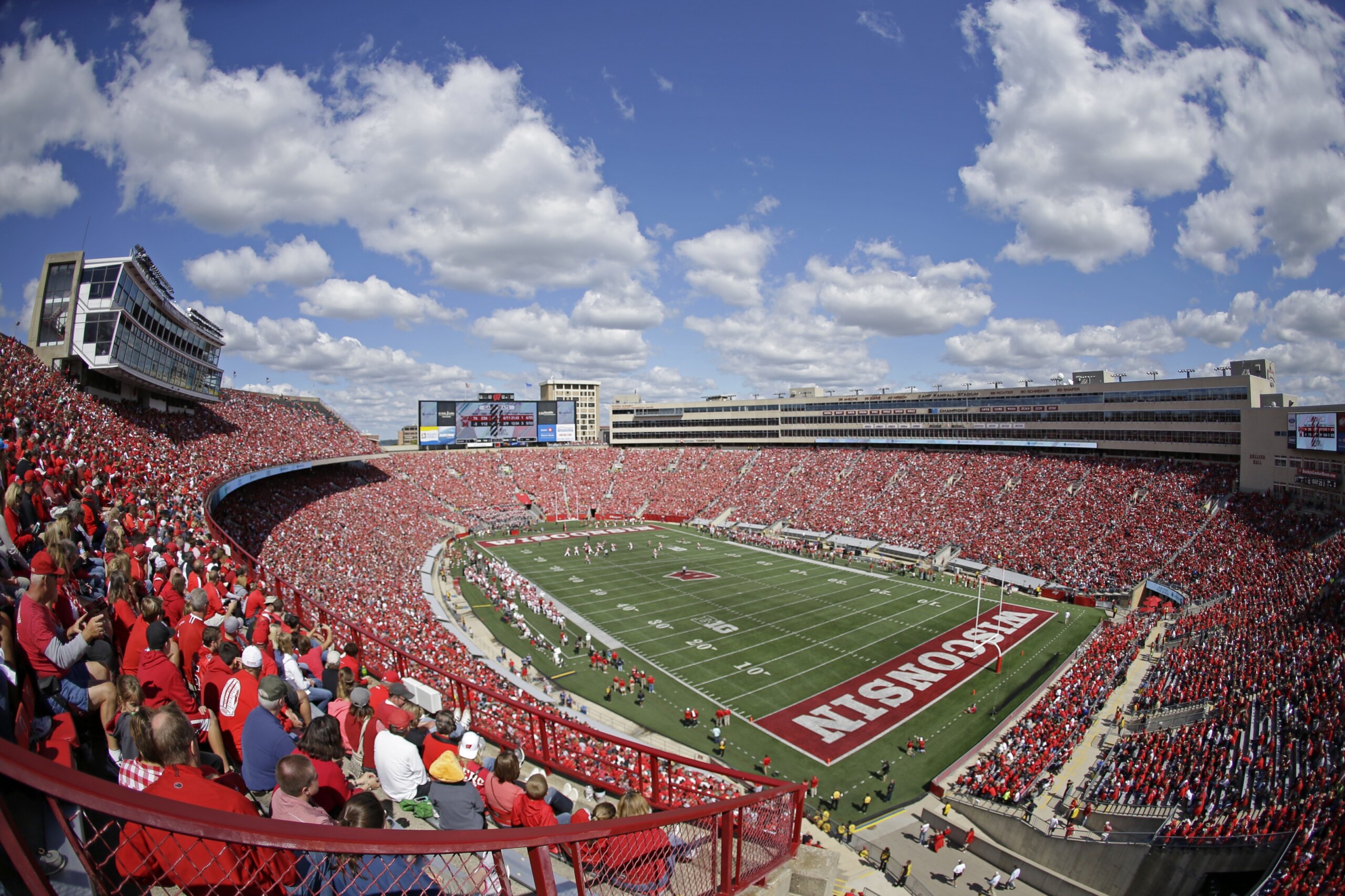
The University of Wisconsin and its NIL collective VC Connect filed a joint lawsuit on Friday against the University of…
The University of Wisconsin and its NIL collective VC Connect filed a joint lawsuit on Friday against the University of Miami alleging it knowingly induced one of the Badgers’ football players to abandon a lucrative name, image and likeness contract to play for the Florida school this upcoming season.
Allegations of tampering rarely get to this level and the 23-page lawsuit, which was filed in state court in Wisconsin and obtained by The Associated Press, is unusual. Depending on its resolution, it could have a a wider impact on future NIL deals across college athletics.
The player in question in the filing is referred to only as “Student-Athlete A.” But the case summary describes facts that line up with the situation involving cornerback Xavier Lucas, who last December announced his plans to enter the transfer portal.
Shortly afterward, Darren Heitner, who has been representing Lucas, indicated that Wisconsin was refusing to put Lucas’ name in the portal and that it was hindering his ability to talk with other schools. In January, Heitner announced that Lucas would be playing for Miami this fall.
The situation is fallout from the rapid changes engulfing college athletics, specifically a combination of two things: Athletes went to court and won the ability to transfer with much more freedom and the 2021 NCAA decision clearing the way for them to strike NIL endorsement deals now worth millions of dollars. That has changed the recruiting landscape and forced the issue of contracts and signed commitments to the fore.
“Indeed, student-athletes’ newfound NIL rights will be rendered meaningless if third parties are allowed to induce student-athletes to abandon their contractual commitments,” a portion of the lawsuit reads.
Wisconsin said in January that it had credible information that Miami and Lucas made impermissible contact with each other before the former Badgers cornerback decided to transfer.
Wisconsin and VC Connect allege that the inducement for Lucas to attend Miami happened within days of him entering his NIL agreement to play for the Badgers, and that they incurred substantial monetary and reputational harm. The lawsuit seeks unspecified monetary damages and “a declaration that Miami’s conduct directed towards Student-Athlete A constituted tampering.”
A message left with the University of Miami seeking comment was not immediately returned. In a text message Friday, Heitner declined to comment on the lawsuit but he said that Lucas still plans to attend Miami and play football.
Wisconsin said it had the support of its leadership and the Big Ten Conference in filing the lawsuit, noting its commitment to “ensuring integrity and fundamental fairness in the evolving landscape of college athletics.”
“While we reluctantly bring this case, we stand by our position that respecting and enforcing contractual obligations is essential to maintaining a level playing field,” the statement said. “In addition to our legal action, we will continue to be proactive to protect the interests of our student-athletes, our program and the broader collegiate athletics community.
Lucas, who is from Pompano Beach, Florida, had 12 tackles, an interception and a sack as a freshman for Wisconsin last season.
Heitner said that Lucas hasn’t received any money from Wisconsin and therefore owes no money to the school. Heitner also argued that Wisconsin had violated an NCAA bylaw by not entering Lucas into the transfer database within two business days of the player’s request.
Wisconsin issued a statement at the time saying it hadn’t put Lucas’ name in the portal because he had entered a two-year binding NIL agreement.
In April, the surprise transfers of brothers Nico and Madden Iamaleava from Tennessee to UCLA prompted fresh questions about contracts and buyouts.
Nico Iamaleava, who led Tennessee to the College Football Playoff last season, walked away from a reported $2.4 million NIL contract. Arkansas freshman quarterback Madden Iamaleava entered the portal after spring practices wrapped up.
Arkansas athletic director Hunter Yurachek released a statement indicating he would support efforts by the Razorbacks’ NIL collective to enforce buyout clauses in athlete contracts. Iamaleava reportedly had a contract valued at $500,000 upon signing with Arkansas.
___
Get poll alerts and updates on the AP Top 25 throughout the season. Sign up here. AP college football: https://apnews.com/hub/ap-top-25-college-football-poll and https://apnews.com/hub/college-football
Copyright
© 2025 The Associated Press. All rights reserved. This material may not be published, broadcast, written or redistributed.
NIL
BYU’s AJ Dybantsa to Lead Team USA U19 in FIBA World Cup
BYU’s AJ Dybantsa to Lead Team USA U19 in FIBA World Cup originally appeared on Athlon Sports. BYU freshman AJ Dybantsa continues to impress on the international stage. The top-ranked recruit in the 2025 class shined throughout the past week at USA Basketball’s U19 training camp in Colorado Springs, earning a spot among the 12 […]
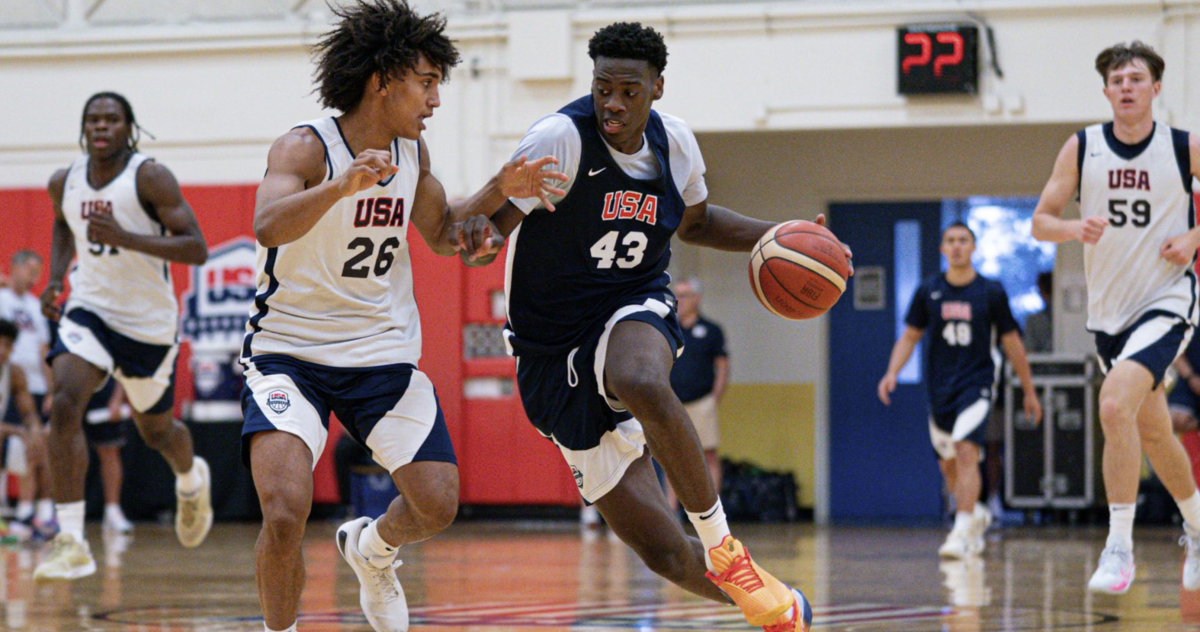
BYU’s AJ Dybantsa to Lead Team USA U19 in FIBA World Cup originally appeared on Athlon Sports.
BYU freshman AJ Dybantsa continues to impress on the international stage. The top-ranked recruit in the 2025 class shined throughout the past week at USA Basketball’s U19 training camp in Colorado Springs, earning a spot among the 12 players for the U19 national team heading to Switzerland.
Team USA is set to depart for Switzerland on June 24 to prepare for the FIBA U19 World Cup. Dybantsa and his teammates will open group play on June 28 against Australia, with additional games scheduled for June 29 and July 1. All three contests will be streamed on YouTube.
Advertisement
Dybantsa told reporters he wanted to “bring back gold for BYU,” and is no stranger to international success. He helped Team USA win gold at both the 2023 FIBA U16 Americas Championship in Mexico and last summer’s U17 World Cup in Turkey. Most recently, he played a starring role at the Nike Hoop Summit in Portland, where he tallied 24 points, six rebounds, five assists and three steals in a dramatic overtime win against the World Select Team.
Related: BYU’s AJ Dybantsa Becomes College Basketball’s Top NIL Earner
The U19 team features a solid coaching staff led by Arizona’s Tommy Lloyd, with some top assistants, including Kentucky head coach and former BYU leader Mark Pope and North Carolina’s Hubert Davis.
Related: 2025 NBA Draft: What Anonymous Scouts Said About BYU’s Egor Demin
Though Dybantsa won’t face Big 12 competition until BYU opens conference play in December, his time with Team USA offers a valuable early preview to rival coaches.
Advertisement
With his eyes set on gold, Dybantsa is ready to show off his skills as one of the most exciting talents before heading back to Provo.
This story was originally reported by Athlon Sports on Jun 20, 2025, where it first appeared.
NIL
University of Wisconsin, NIL collective sue University of Miami
The University of Wisconsin and its NIL collective, VC Connect, filed a joint lawsuit Friday against the University of Miami alleging the Atlantic Coast Conference program knowingly induced one of the Badgers’ football players to abandon a lucrative name, image and likeness contract to play for the Florida school this upcoming season. Allegations of tampering […]
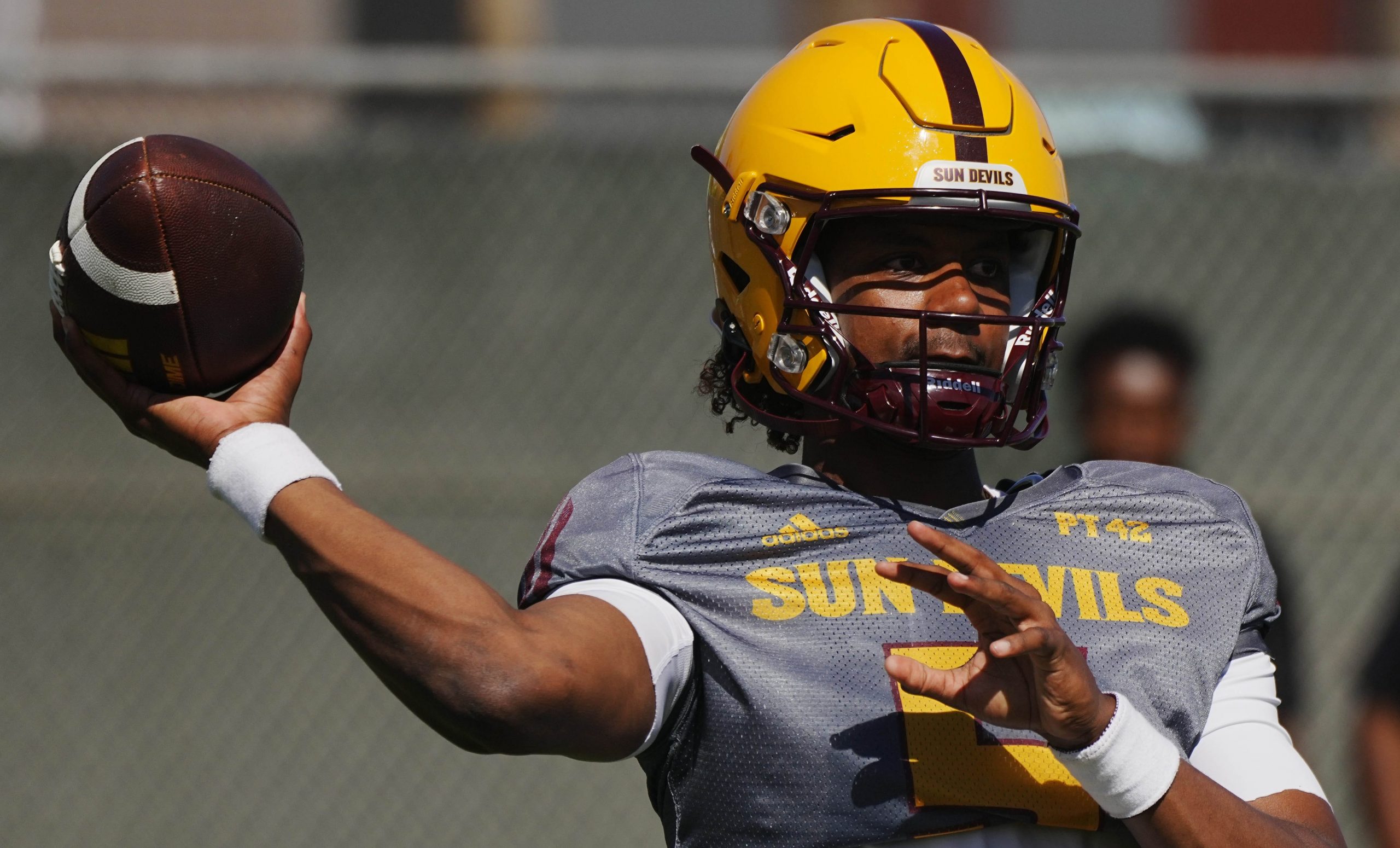

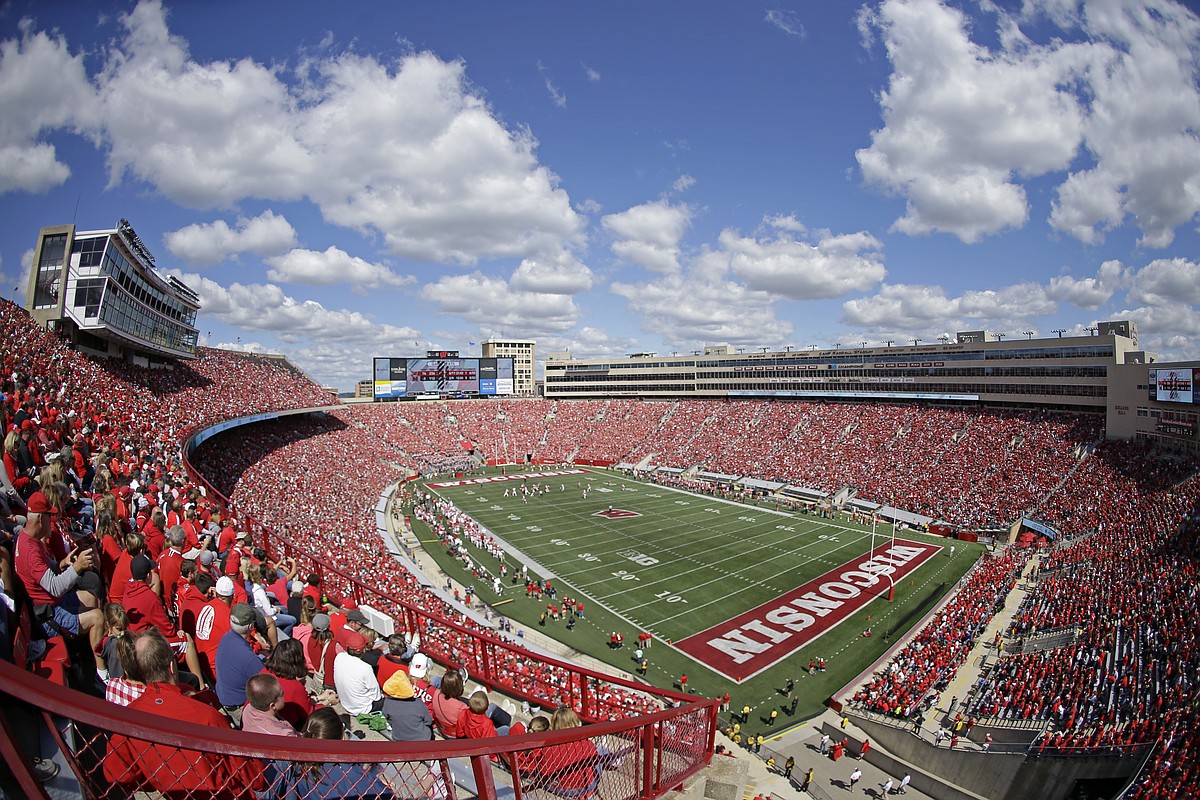
The University of Wisconsin and its NIL collective, VC Connect, filed a joint lawsuit Friday against the University of Miami alleging the Atlantic Coast Conference program knowingly induced one of the Badgers’ football players to abandon a lucrative name, image and likeness contract to play for the Florida school this upcoming season.
Allegations of tampering rarely get to this level, and the 23-page lawsuit, which was filed in state court in Wisconsin and obtained by The Associated Press, is unusual. Depending on its resolution, it could have a a wider impact on future NIL deals across college athletics.
The player in question in the filing is referred to only as “Student-Athlete A,” but the case summary describes facts that line up with the situation involving cornerback Xavier Lucas, who last December announced his plans to enter the NCAA transfer portal.
Shortly afterward, Darren Heitner, an attorney who has been representing Lucas, indicated Big Ten Conference member Wisconsin was refusing to put Lucas’ name in the portal and that it was hindering his ability to talk with other schools. In January, Heitner announced that Lucas would be playing for Miami in the 2025 season.
The situation is fallout from the rapid changes engulfing college athletics, most notably changes to NCAA rules allowing student-athletes to strike NIL endorsement deals — some worth millions of dollars — and transfer with immediate eligibility in most cases. That has changed the recruiting landscape and forced the issue of contracts and signed commitments to the fore.
“Indeed, student-athletes’ newfound NIL rights will be rendered meaningless if third parties are allowed to induce student-athletes to abandon their contractual commitments,” a portion of the lawsuit reads.
Wisconsin said in January that it had credible information that Miami and Lucas made impermissible contact with each other before the former Badgers cornerback decided to transfer.
Wisconsin and VC Connect allege the inducement for Lucas to attend Miami happened within days of him entering his NIL agreement to play for the Badgers, and that they incurred substantial monetary and reputational harm. The lawsuit seeks unspecified monetary damages and “a declaration that Miami’s conduct directed towards Student-Athlete A constituted tampering.”
A message left with the University of Miami seeking comment was not immediately returned. In a text message Friday, Heitner declined to comment on the lawsuit, but the attorney said Lucas still plans to attend Miami and play football.
Wisconsin said it had the support of its leadership and the Big Ten in filing the lawsuit, noting its commitment to “ensuring integrity and fundamental fairness in the evolving landscape of college athletics.”
“While we reluctantly bring this case, we stand by our position that respecting and enforcing contractual obligations is essential to maintaining a level playing field,” the statement read. “In addition to our legal action, we will continue to be proactive to protect the interests of our student-athletes, our program and the broader collegiate athletics community.
Lucas, who is from Pompano Beach, Florida, had 12 tackles, an interception and a sack as a freshman for Wisconsin last season.
Heitner said Lucas hasn’t received any money from Wisconsin and therefore owes no money to the school. Heitner also argued Wisconsin had violated an NCAA bylaw by not entering Lucas into the transfer database within two business days of the player’s request.
Wisconsin issued a statement at the time saying it hadn’t put Lucas’ name in the portal because he had entered a two-year binding NIL agreement.
In April, the surprise transfers of quarterback brothers Nico and Madden Iamaleava to UCLA prompted fresh questions about contracts and buyouts.
Nico, who led Tennessee to the College Football Playoff last season as a redshirt freshman, walked away from a reported $2.4 million NIL contract near the end of spring practices for the Volunteers. Madden, who was an early enrollee at Arkansas as a member of the team’s 2025 signing class, entered the portal after spring practices wrapped up for the Razorbacks.
At the time, Arkansas athletic director Hunter Yurachek released a statement indicating he would support efforts by the Razorbacks’ NIL collective to enforce buyout clauses in athlete contracts. Iamaleava reportedly had a contract valued at $500,000 upon signing with Arkansas.
NIL
Unprecedented lawsuit accuses Miami of poaching Wisconsin player under NIL contract
Wisconsin head coach Luke Fickell stands on the sideline during the second half of an NCAA college football game against Southern California, Saturday, Sept. 28, 2024, in Los Angeles. (AP Photo/Mark J. Terrill, File) LINCOLN, Neb. (KLKN) — The University of Wisconsin filed a lawsuit Friday saying Miami’s football team tampered with a Badgers player […]
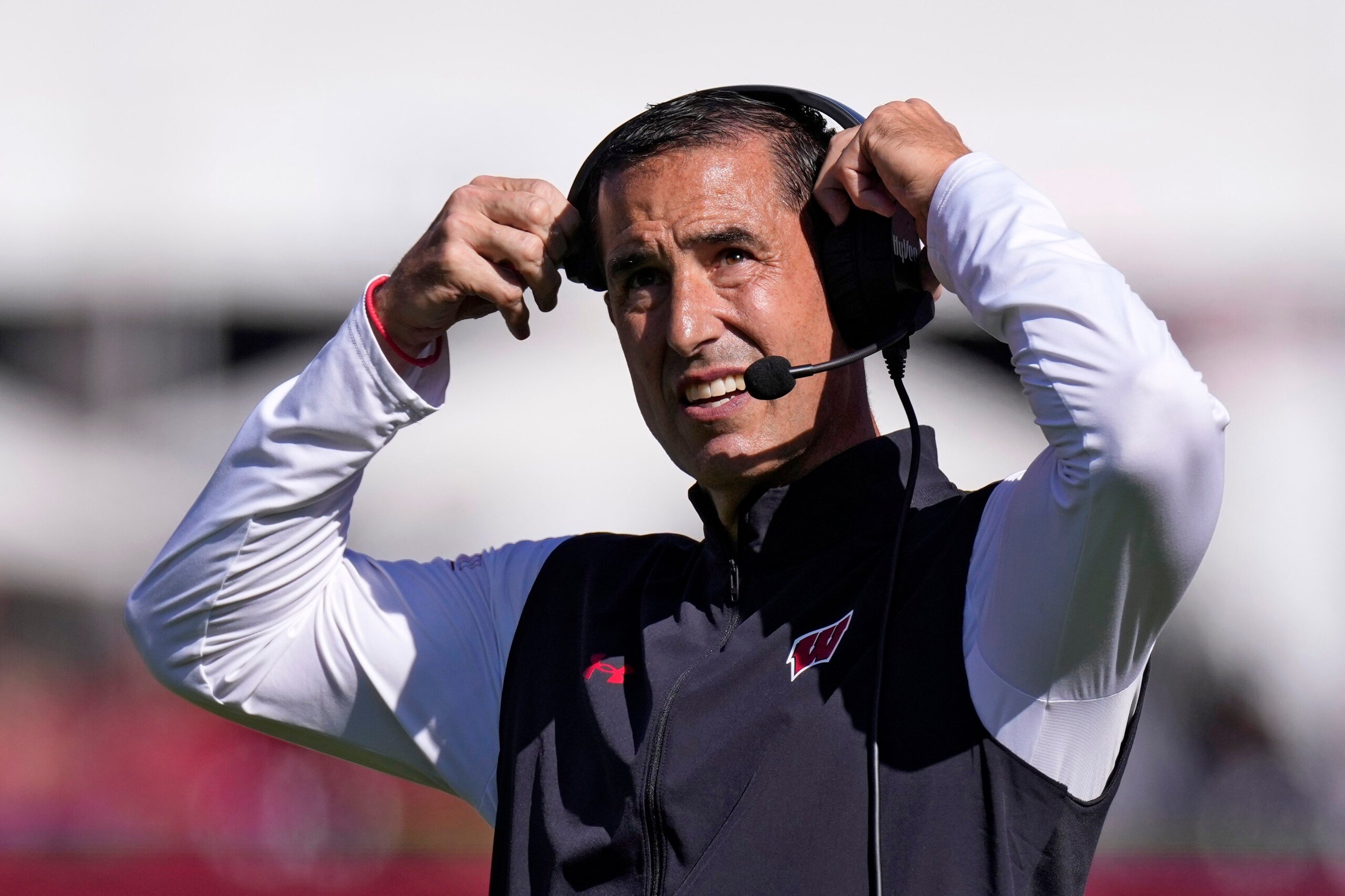
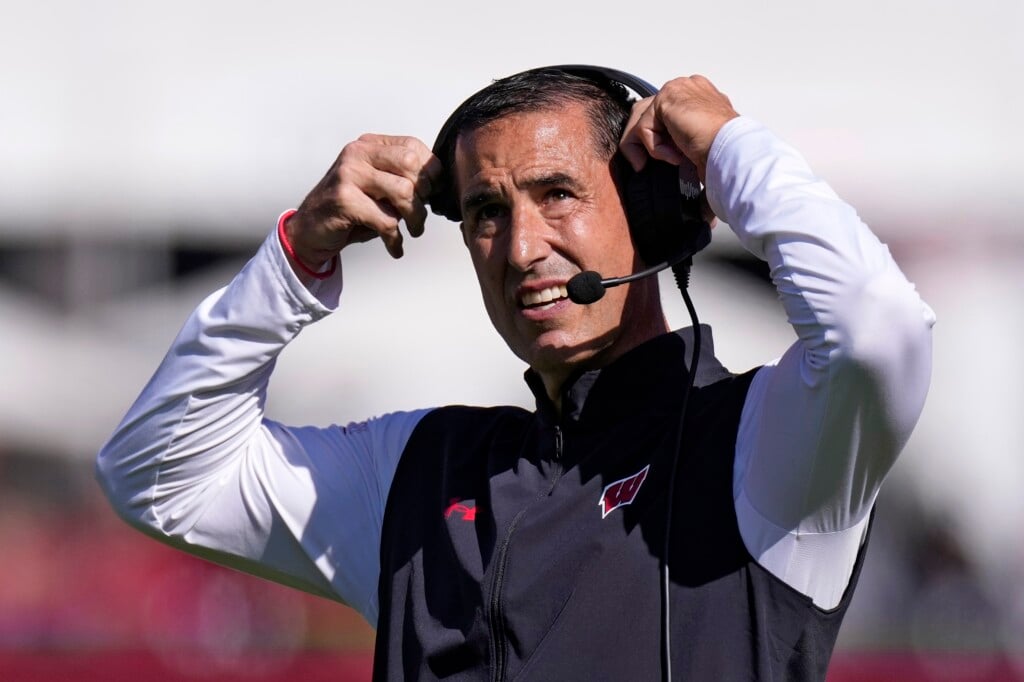
LINCOLN, Neb. (KLKN) — The University of Wisconsin filed a lawsuit Friday saying Miami’s football team tampered with a Badgers player under a name, image and likeness contract, ESPN reports.
The first-of-its-kind lawsuit mentions freshman defensive back Xavier Lucas, who left Wisconsin for Miami in January.
According to ESPN, the Badgers staff refused to enter Lucas’ name into the transfer portal because he had signed a two-year revenue sharing contract with the university.
In the lawsuit, Wisconsin claims that a Miami staff member and a prominent alumnus met with Lucas and his family at a relative’s home in Florida.
Miami offered Lucas money to transfer, which Wisconsin says is tortious interference by knowingly compelling a player to break the terms of his deal with the Badgers.
“While we reluctantly bring this case, we stand by our position that respecting and enforcing contractual obligations is essential to maintaining a level playing field,” the school said in a statement sent to ESPN.
According to the complaint, Wisconsin decided to file suit in hopes that “during this watershed time for college athletics, this case will advance the overall integrity of the game by holding programs legally accountable when they wrongfully interfere with contractual commitments.”
ESPN said the pending case will determine whether schools can use NIL deals to keep players from transferring, even though the players aren’t technically employees of the university.
Starting July 1, schools will start paying their athletes directly.
SEE ALSO: Federal judge approves $2.8B settlement, paving way for US colleges to pay athletes millions
But right now, according to ESPN, several contracts between Big Ten schools and their players state that athletes are not being paid to play football for the university.
Since the school is technically paying only to use the player’s NIL rights, it’s unclear if a judge will enforce a part of the contract that dictates where the player attends school.
The Big Ten said in a statement to ESPN that it supports Wisconsin’s decision to file the lawsuit and that Miami’s alleged actions “are irreconcilable with a sustainable college sports framework.”
NIL
ESPN
1 hour ago Wisconsin head coach Luke Fickell stands on the sideline during the second half of an NCAA college football game against Southern California, Saturday, Sept. 28, 2024, in Los Angeles. (AP Photo/Mark J. Terrill, File) LINCOLN, Neb. (KLKN) — The University of Wisconsin filed a lawsuit Friday saying Miami’s football team tampered with […]
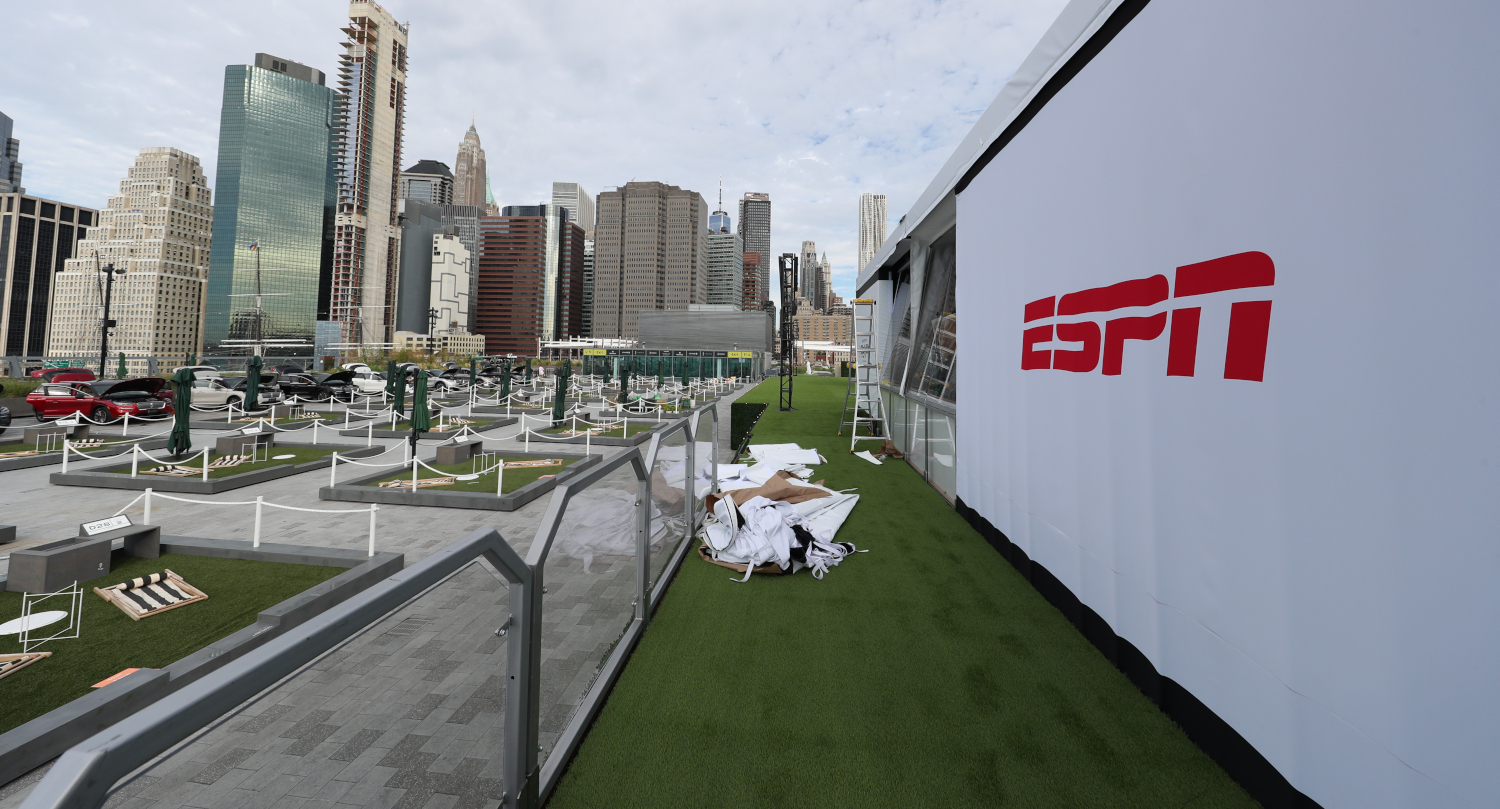


LINCOLN, Neb. (KLKN) — The University of Wisconsin filed a lawsuit Friday saying Miami’s football team tampered with a Badgers player under a name, image and likeness contract, ESPN reports.
The first-of-its-kind lawsuit mentions freshman defensive back Xavier Lucas, who left Wisconsin for Miami in January.
According to ESPN, the Badgers staff refused to enter Lucas’ name into the transfer portal because he had signed a two-year revenue sharing contract with the university.
In the lawsuit, Wisconsin claims that a Miami staff member and a prominent alumnus met with Lucas and his family at a relative’s home in Florida.
Miami offered Lucas money to transfer, which Wisconsin says is tortious interference by knowingly compelling a player to break the terms of his deal with the Badgers.
“While we reluctantly bring this case, we stand by our position that respecting and enforcing contractual obligations is essential to maintaining a level playing field,” the school said in a statement sent to ESPN.
According to the complaint, Wisconsin decided to file suit in hopes that “during this watershed time for college athletics, this case will advance the overall integrity of the game by holding programs legally accountable when they wrongfully interfere with contractual commitments.”
ESPN said the pending case will determine whether schools can use NIL deals to keep players from transferring, even though the players aren’t technically employees of the university.
Starting July 1, schools will start paying their athletes directly.
SEE ALSO: Federal judge approves $2.8B settlement, paving way for US colleges to pay athletes millions
But right now, according to ESPN, several contracts between Big Ten schools and their players state that athletes are not being paid to play football for the university.
Since the school is technically paying only to use the player’s NIL rights, it’s unclear if a judge will enforce a part of the contract that dictates where the player attends school.
The Big Ten said in a statement to ESPN that it supports Wisconsin’s decision to file the lawsuit and that Miami’s alleged actions “are irreconcilable with a sustainable college sports framework.”
NIL
An ex-college basketball player testifies that Sean ‘Diddy’ Combs got ‘extremely creative’ on drugs
NEW YORK — A former Syracuse University basketball player who worked recently for Sean “Diddy” Combs as a personal assistant testified at the music mogul’s sex trafficking trial on Friday that Combs got “extremely creative” when he was on drugs. Brendan Paul, 26, was arrested last year at a Miami airport with cocaine he says […]
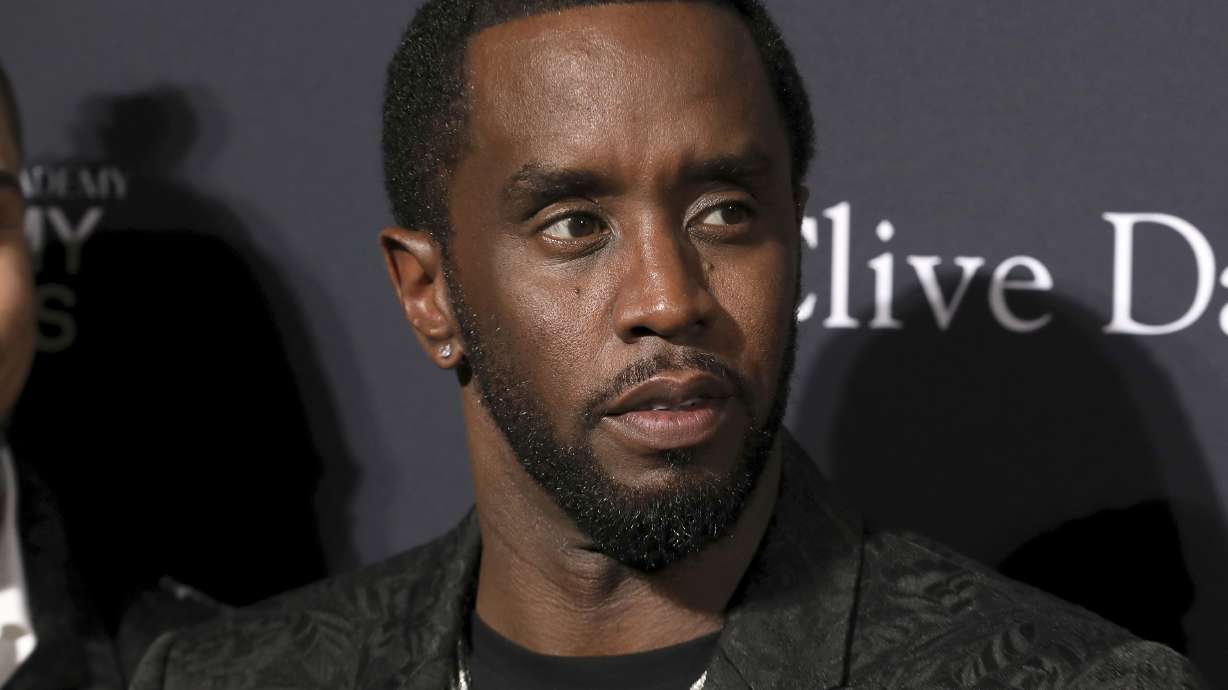
NEW YORK — A former Syracuse University basketball player who worked recently for Sean “Diddy” Combs as a personal assistant testified at the music mogul’s sex trafficking trial on Friday that Combs got “extremely creative” when he was on drugs.
Brendan Paul, 26, was arrested last year at a Miami airport with cocaine he says belonged to Combs, and he testified with immunity about what it was like working for the hip-hop entrepreneur for a year and a half. Paul was arrested in March 2024 — the same day federal agents conducted multiple searches related to the Combs’ investigation.
Prosecutors are winding down their case after six weeks of testimony from an array of witnesses ranging from ex-girlfriends and former employees to male sex workers and the rapper Kid Cudi. Ye, formerly known as Kanye West, even made a surprise appearance at the courthouse.
The prosecution seeks to convince the jury that Combs oversaw a sprawling racketeering enterprise for two decades that relied on obedience by employees willing to do anything for him, including buying drugs when necessary.
Defense lawyers say Combs did not commit federal crimes, although they acknowledge that prosecutors have exposed domestic violence during the trial. After pleading not guilty following his September arrest at a Manhattan hotel, Combs has been held without bail at a federal lockup in Brooklyn.
Prosecutors were expected to rest their case by Monday. A defense presentation is expected to last from two to five days.
Paul said he bought drugs for Combs between five and 10 times, spending up to $500 for drugs including cocaine, ketamine, ecstasy and marijuana.
He said he only did drugs with Combs once, when Combs asked him to try “tusi,” also known as pink cocaine, to see if it was good.
Paul said he did so because he “wanted to prove my loyalty” and said he thought it was good.
“We continued on with our night,” he told Assistant U.S. Attorney Christy Slavic.
Paul said that prior to his arrest, he had forgotten about the cocaine after collecting it while “sweeping” Combs’ room that morning and had accidentally left it in a bag he carried as he prepared to go on vacation with Combs and other aides. The charges were dismissed after Paul completed a pretrial diversion program.
Under questioning by defense attorney Brian Steel, Paul said his “heart dropped” when he realized that there was cocaine in a travel bag after telling officers at the airport that everything in the bag belonged to him.
Steel asked Paul if Combs was generally happy and didn’t hurt anyone when he was on drugs.
“He got extremely creative,” Paul responded.
At another point, Steel asked the witness: “You would not work for a criminal, would you?”
“Absolutely not,” Paul responded.
Slavic, though, elicited Paul’s mixed feelings about Combs when the prosecutor asked him just before he finished his testimony: “Sitting here today, how do you feel about Mr. Combs?”
“It’s complicated,” he answered.
Paul, originally from Cleveland, was a 6-foot-2 guard who walked on at Syracuse University and came off the bench in 16 games over two seasons, playing a total of 17 minutes and scored just 3 points. He later transferred to lower-tier Fairmont State University in West Virginia, where he played for two more seasons.
-
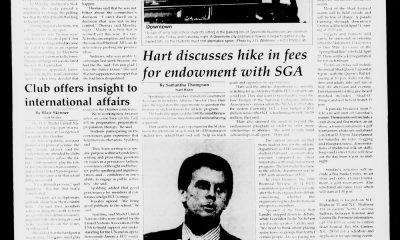
 High School Sports2 weeks ago
High School Sports2 weeks agoParents Speak Out As Trans Pitcher Throws Shutout In MN State Quarterfinals
-
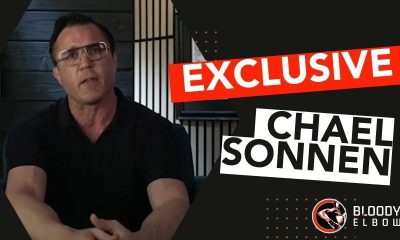
 Professional Sports2 weeks ago
Professional Sports2 weeks ago'I asked Anderson privately'… UFC legend retells secret sparring session between Jon Jones …
-

 Health2 weeks ago
Health2 weeks agoOregon track star wages legal battle against trans athlete policy after medal ceremony protest
-
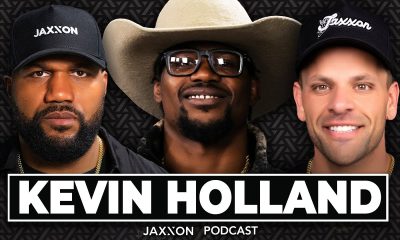
 Professional Sports2 weeks ago
Professional Sports2 weeks agoUFC 316 star storms out of Media Day when asked about bitter feud with Rampage Jackson
-
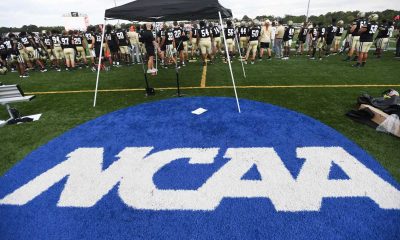
 NIL3 weeks ago
NIL3 weeks agoNCAA Sends Clear Message About Athlete Pay and Roster Limits
-

 NIL3 weeks ago
NIL3 weeks agoMen's college basketball Top 25 reset
-

 Motorsports1 week ago
Motorsports1 week agoNASCAR Weekend Preview: Autódromo Hermanos Rodríguez
-
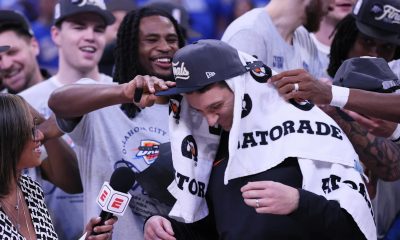
 College Sports3 weeks ago
College Sports3 weeks agoOKC’s Mark Daigneault knows what it takes to win championships. His wife has won a ton of them
-
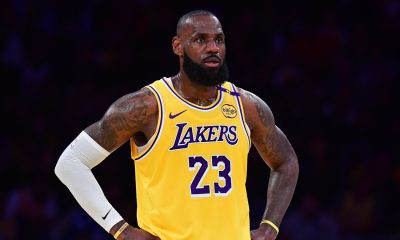
 Rec Sports3 weeks ago
Rec Sports3 weeks ago2x NBA All-Star Reacts to Viral LeBron James Statement
-

 Social Media3 weeks ago
Social Media3 weeks agoControversial Athletics Gender Dispute Goes Viral After Riley Gaines Lashes Over Authorities

































